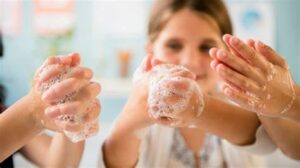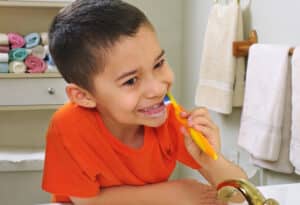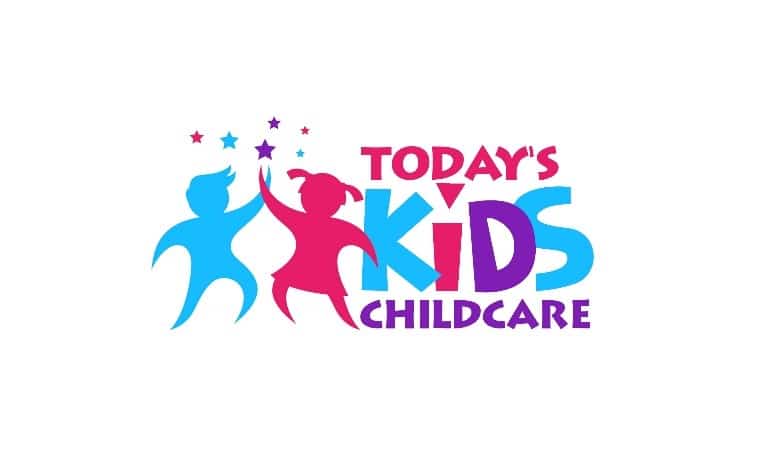Teaching young kids proper hygiene is an important life skill. Here are eight tips to help you teach and reinforce good hygiene practices:
- Be a Role Model
Children learn by observing and imitating their parents or caregivers. Demonstrate good hygiene practices yourself, such as washing your hands properly, brushing your teeth, and maintaining cleanliness. Your actions will serve as a powerful example for your child.
- Make it Fun
Turn hygiene practices into enjoyable activities. Use songs, rhymes, or games to make handwashing or toothbrushing more engaging and entertaining. Incorporate storytelling or imaginative play to make hygiene routines more enjoyable for young kids.

- Explain the “Why”
Help children understand the importance of hygiene and how it keeps them healthy. Explain that washing hands removes germs, brushing teeth prevents cavities, and bathing keeps their bodies clean. Use simple and age-appropriate language to convey the reasons behind each hygiene practice.
- Establish Consistent Routines
Create a daily routine for hygiene practices. Set specific times for activities like handwashing, toothbrushing, bathing, and nail trimming. Consistency helps children develop habits and makes hygiene practices a regular part of their daily lives.
- Provide Step-by-Step Guidance
Break down hygiene tasks into simple steps. Show your child how to properly wash their hands, brush their teeth, or wash their body. Use visual aids, such as posters or picture cards, to illustrate each step. Guide them patiently through the process until they can do it independently.
- Use Child-Friendly Products
Choose age-appropriate and child-friendly products for hygiene practices. Use soft-bristled toothbrushes, fluoride toothpaste designed for kids, mild soaps, and shampoos. Let your child be involved in selecting their own toothbrush or soap to make it more personal and exciting for them.
- Reinforce Positive Behavior

Praise and reward your child when they demonstrate good hygiene habits. Offer verbal praise, high-fives, stickers, or small rewards to reinforce their efforts and motivate them to continue practicing good hygiene.
- Encourage Independence
Gradually encourage your child to take more responsibility for their own hygiene as they grow. Provide them with age-appropriate tools and guidance, but allow them to perform tasks like handwashing or toothbrushing independently. Offer support and assistance as needed, while also promoting their sense of autonomy.
Remember to be patient and understanding throughout the process. Young children may need reminders and assistance initially, but with consistent practice and encouragement, they will develop good hygiene habits that will benefit them throughout their lives.
